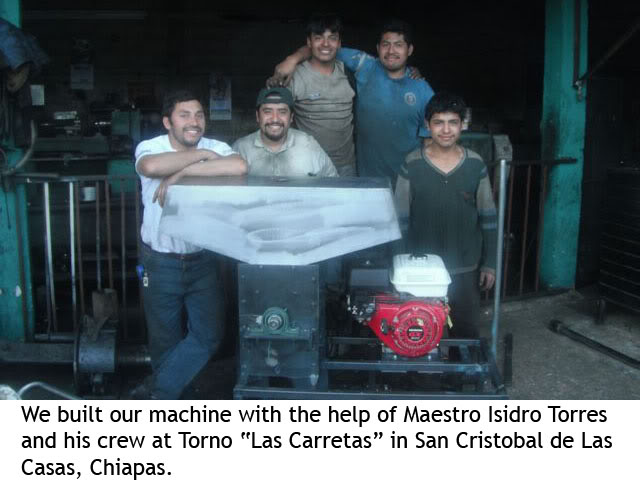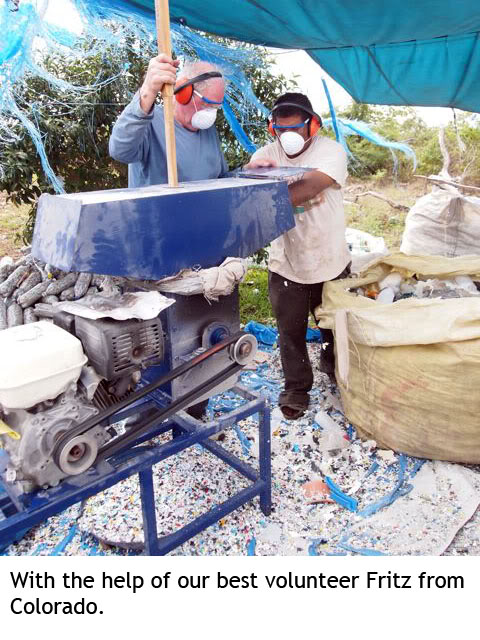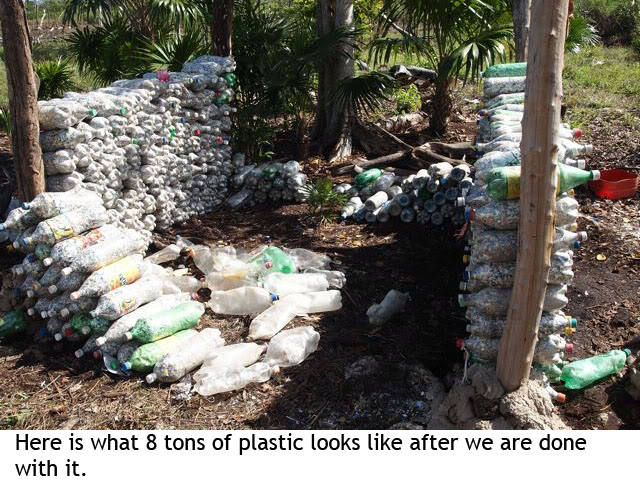MARISOL- Meso American Reef Initiative Save Ocean Life
From civicintelligence
Contents
Case Study On MARISOL-Meso American Reef Initiative Save Ocean Life
- Rough Draft
Introduction- The Environmental Problem of Ocean Trash
- Ocean trash is a global issue of our time, causing a cascade of problems for the delicate eco-systems within it, ocean pollution is growing exponentially as we increasingly use the oceans for commercial travel and industrial shipping. According to a 2009 report by the Regional Seas Program of the United Nations Environment Program (UNEP) "Marine litter from both land and sea based activities has accumulated to such an extent that in central Pacific areas the mass of floating plastic is six times greater than that of plankton. Mass concentrations of marine litter consisting of plastics, ropes, fishing nets and cargo associated wasters (including whole shipping containers) extending over many kilometers have been observed in high 'sink' areas in the equatorial convergence zone. It is estimated that over 46,000 pieces of litter are on the surface of every square mile of ocean today. 70% of marine litter will eventually sink to the seafloor." (Ecosystems and biodiversity in deep waters and high seas 2009) While this study also describes other ocean pollution such as noise, chemical, oil and nuclear, the largest direct threat to marine life is from plastics. Plastic waste accounts for the majority of ocean garbage, and constitutes approximately 90% of all trash floating on the ocean surface (UNEP 2009) Unlike other types of trash, plastic does not biodegrade, rather its process is photo-degradation through sunlight, resulting in it breaking down into smaller and smaller pieces, that never disappear . Plastic pieces are then eaten by marine life, get stuck on reefs, clog ocean floors, and wash up onto the worlds beaches. Ocean trash poses a significant threat to the health of sea creatures of all sizes, "Over 100,000 marine mammals and one million sea birds die each year from ingesting or becoming entangled in plastic." (NOAA 2009) Yearly approximately 10% of the worlds' land garbage ends up in the ocean (UNEP 2009) and with a population approaching 7 billion people this threatens the future health of the world's oceans, unless solutions presented and global actions are enacted. While many of the environmental issues that we face today are hard for the average person to fully grasp, trash is a problem that everyone can see, from gum stuck on our city sidewalks to garbage washing up on our shores; it is therefore a tangible reality. despite the physical actuality of a global problem with trash creation and disposal, there is still a diffusion of responsibility as to who is going to clean it up. Often society looks to government agencies to clean the streets and provide garbage services, but who is responsible for the trash in the oceans that wash up on the shore? To this end can a framework of civic intelligence help to negate that diffusion and enable every citizen to take ownership of, not only what they are disposing, but a greater interaction with the entire cycle of trash?
The Founding of MARISOL
- When Carmella Ihrig and John Craft, went to Mahahual, Mexico for a scuba diving trip, they were faced with the physical reality of ocean pollution. The reefs they set out to explore were choking among tones and tones of plastic, and garbage of every kind. The beaches they imagined they would enjoy were, similarly, strewn with garbage from plastic bottles to medical waste, making the beaches less an idyllic vacation and more a danger zone. While many would have turned away unable to fathom a solution to such an enormous global issue, Carmella and John stayed, founded MARISOL and started a new adventure, collecting garbage from the reefs and beaches. “As divers and activists we feel compelled to preserve this international jewel.” (MARISOL 2007) Had they simply continued to clean the beaches and reefs would this have been an example of civic intelligence or just good intentions on the path to folly? As they report on their website, “So much waste that is washing up on the beaches everyday. We have been told that the currents flush the waste in the ocean to this part of the world. As we have started the clean-up process, we do find garbage from all over Latin America and the Caribbean here. We have also seen waste from China and North America.” (MARISOL 2007) To continue only in the act of removing the garbage would have been a loosing battle on all fronts, as the garbage continued to wash onto the reef from all over the world. Realizing this they developed a mission to deal with the whole problem rather than just the one they were faced with, “ Our goal is to address the obvious issue first, then work our way backwards to determining and documenting where it comes from, and how it finds its way into the water so consistently.” (MARISOL 2007) Carmella and John creatively solved the problems they faced, and evolved new goals for MARISOL, "To build long-term community based recycling programs to clean the oceans and beaches along the largest reef system along the western hemisphere." (MARISOl 2011)
Engagement
- “We started our project cleaning beaches, not really knowing where we were going to bring the garbage or what we were going to do with it.” (MARISOL 2011) Initially community involvement with the project came from their interactions with the nearest recycling station, which was two hours away. They negotiated a deal where they would be compensated for certain materials that they would bring, such as metals, but the majority of the garbage collected was plastic bottles. “We managed to bring our first 6 tonnes of plastic to the facility, but it was multiple truckloads and ultimately made no financial or environmental sense to do this.” (MARISOL 2011) They renegotiated with the recycling station, who started coming to the beach with a larger truck but they had to have a certain weight to make it a viable journey, and they did not have the labor force to collect that much that quickly. “This led us to consaider shredding or crushing our beach plastic to reduce the volume and making the journey to the recycler more cost effective. We considered buying a used shredder from the States, but the machines we found were either cost prohibitive or they ran 3 phase power which is not available on the beach.” (MARISOL 2010) Rather than allowing this setback to stop their work they kept on trying to find solutions, ultimately reaching out to the community for help. Through meeting with locals and presenting their dilemma they garnered local support and inspiration. Each group was inspiring and empowering the other to continue the work. “The “Do it yourself” culture here in Mexico inspired us to try and build a simple, low cost plastic shredder with the help of a local machine shop.” (MARISOL 2010) The shredder was created through collaboration between local carpenters and metal workers, who, having never owned any store bought equipment, brought to the task their experience and skill from making their own machines and tools. The machine can “Grind 210 kilos in 6 hours.” (MARISOL 2010) By experiencing the physical reality of the shredded plastic sparking new ideas and directions, “ Inspired by other organizations who use plastic bottles as building materials. Eco-tec, for example, uses 2 liter soda or water bottles and fills them with sand or dirt to create concrete blocks.” (MARISOL 2010) With this new direction their vision evolved to enable the local community to have a recycling program that could create a viable income, while empowering them to greater ownership of the beaches. Through global donations they are able to hire local residents to collect trash and then shred for construction materials. “$200 pays for two people to work for one week. They are averaging 2 tons of garbage per week.” (MARISOL 2011) Eventually as the goal is for this process to become self sustaining for the local community, as more of the plastic “bricks” are utilized in building projects.
Orientation
Organization
Intelligence
Products and Projects
- The long term direction for MARISOl is to create a sustainable recycling program for the communities along the Meso American Reef. By engaging the residents in collaborating on a shredding machine they have inspired a greater enthusiasm that not only can clean the beaches and reefs but create many jobs in the process. Through the knowledge of companies such as, Eco-Tech [1] and BUVAD [2] they applied successful working models, to their project. Currently they are at the early stages of using the plastic 'bricks' so it will be interesting to see if they can capture the same outcomes of the companies that they are trying to mirror. Plastic bricks have become a viable way for low income areas to build community buildings, family homes or to assist in recover after environmental devastation.
- picture below is an example of education program to instruct residents in how to build their own buildings using plastic bottles. From Eco-tec website.
- The picture below shows a complete building in Honduros. From Eco-tec website
- Picture below from MARIOL website showing the results of their work.
Resources
SeeMe
Pattern Cards
- Engaged Tourism (107)
- Thinking Communities (118)
- Durable Assets (58)
Conclusion
- Solutions are only going to be discovered, and enacted, when entire communities take ownership for this problem. Often the most serious trash pollution falls into the poorest communities, who are struggling to meet the needs of the immediate survival and have no desire, energy, or finances to tackle the problem. MARISOL is an example of how the actions of one individual can spark the unity within a community to empower active solutions, it demonstrates an inspiring start. However, to truly embody civic intelligence it needs a global framework so their organization does not simply float individually making small steps but not combating the root of the problem. It is imperative that a network of similar foundations unite to work cohesively to combat the reality of ocean garbage and to create long-term solutions to ceasing the problem altogether. The creation of a “world brain” with formats available for similar small communities to develop their own program is essential to greater, global solutions. The reduction of packaging and the greater need to discover creative solutions to recycling is going to happen with local communities working with manufacturers, a great example of this interaction is a campaign by the Women’s Institute in England. In 2006, the Women’s Institute started the ‘Packaging Campaign’ designed to bring attention to manufacturers and consumers to the waste create by needless packaging. The campaign asked for WI members to leave packaging at the supermarket check out on one day in 2006. The results of this campaign was the biggest supermarket in England, Tesco, started asking customers to do the same so they could discern which packaging people considered unneeded. If organizations like MARISOL connected with campaigns like the WI, they would create a program of change right through the chain of trash.



